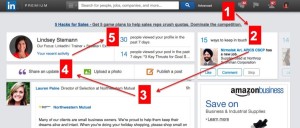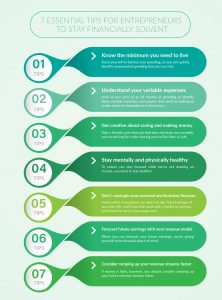
You and your employees see Forbes’ Best Places to Work every year. Although they love the company, you know there are specific pieces of the puzzle missing to make your organization part of that list. While it might not be on the list yet, the company is on its way to making the cut to be one of the best places to work. How will you find the lost puzzle pieces? Here are 5 strategies used by companies deemed Best Places to Work to help you find the fragments you’ve been missing.
If you build it, they will come
When you look at the companies who made the list, what do they all have in common? They built it… it wasn’t a prefabricated amalgamation of mismatched cultural and engaging pieces. These companies strategically created their organizations with elements that landed them in the Best Places to Work. Martin Seligman, University of Pennsylvania Professor of Psychology, entirely reframed the idea of unhappiness and began to explore human well-being. Seligman asked:
“What are the enabling conditions of life that help people achieve greater happiness and thrive their lives? What makes people flourish?”
You have the idea of the employees you’d like to hire, so you should know the aspects that will not only attract but engage them in your organization. Build a culture based on the character you’ve established in the office. Once you’ve established that culture, you’re working ideal, those high-quality candidates will come and you will be able to engage employees.
Think like the employee. Be the employee.
There’s no way you’ll be able to encapsulate the employee lifestyle if you’re not immersed in it, and as leadership you won’t be. You’re busy with the daily happenings of middle and upper management. You can, however, gain insight into the working environment for your team through simple employee engagement surveys. Although this might sound remedial, surveys and evaluations are critical even in creating effective teams.
Using platforms that are in line with employee behavior (i.e., the use of social media) can make assessing engagement (and finding resolutions to engagement concerns) easier. Systems like Bitrix24 or Asana are specifically designed for the water cooler conversations that are a fundamental need in the workplace and team building. They involve typical social media behavior, but are founded in project management.
Employee appreciation goes a long way
Sometimes undercut as a characteristic of a friendly manager, employee appreciation is more than just a friendly comment. It instills a sense of belonging and exceptional work in your team. DHL Express, for example, shows their appreciation for employee performance in both large and small ways. Lee Chalmers, Leadership Consultant for Large Corporates, Academia and the Arts, said:
“You want your employees to go the extra mile. This is more likely from people who feel valued. If you ask people to talk about a manager who has been important to them, they will normally single out someone who has encouraged them, recognized them for what they are and what they are capable of. You need to develop them in the way your favorite boss did.”
Be a support system
The best of the best organizations use mentorship programs to help new hires and novice team members immerse themselves in their new responsibilities. In fact, 71% of Fortune 500 companies offer mentorship programs for their employees. M.D. Anderson Cancer Center provides a mentoring program for their employees – and it’s not just from the top down. All employees help each other succeed within the organization to achieve personal and professional goals. Doing so has improved employee career development, leadership development, diversity, reverse mentoring, and knowledge transferring.
Companies like Cummins even encourage their employees to be that support system for their communities. More than 27,000 of their employees worked on community service projects within the last 3 years. Encouraging service work appeals to the 84% of Millennials who feel making a positive impact in their community is more important than their own professional recognition.
Tell your story
Employer branding is everything in human capital management. Companies like Google and Southwest Airlines have made their mark on their industries and as talent competitors. Between their heightened value of employee opinion and their army of brand ambassadors, both organizations have been able to find a voice. That voice is shared by their employees and those who are invested in the companies.
Let your employees be a part of the creation of the story; after all, they are your story. They serve as some of your best PR agents because their friends, family, and followers are more likely to listen to the opinion of a person rather than an organization. Daniel Roth, Executive Editor of LinkedIn, said:
“While companies have spent the last few years amassing followers, their employees have organically done the same – on a much larger scale. On average, according to our data, the employees of a company have 10 times the social following that their company has. And those voices have much higher engagement.”
The companies who made the list on Forbes’ Best Places to Work have mastered employee engagement. They’ve built their cultures from the ground up, founded on employee appreciation, employee support and creating an employer brand like no other. Use these 5 strategies to find the employee engagement puzzle pieces you’ve been missing. What’s there to lose?
Business & Finance Articles on Business 2 Community(225)






